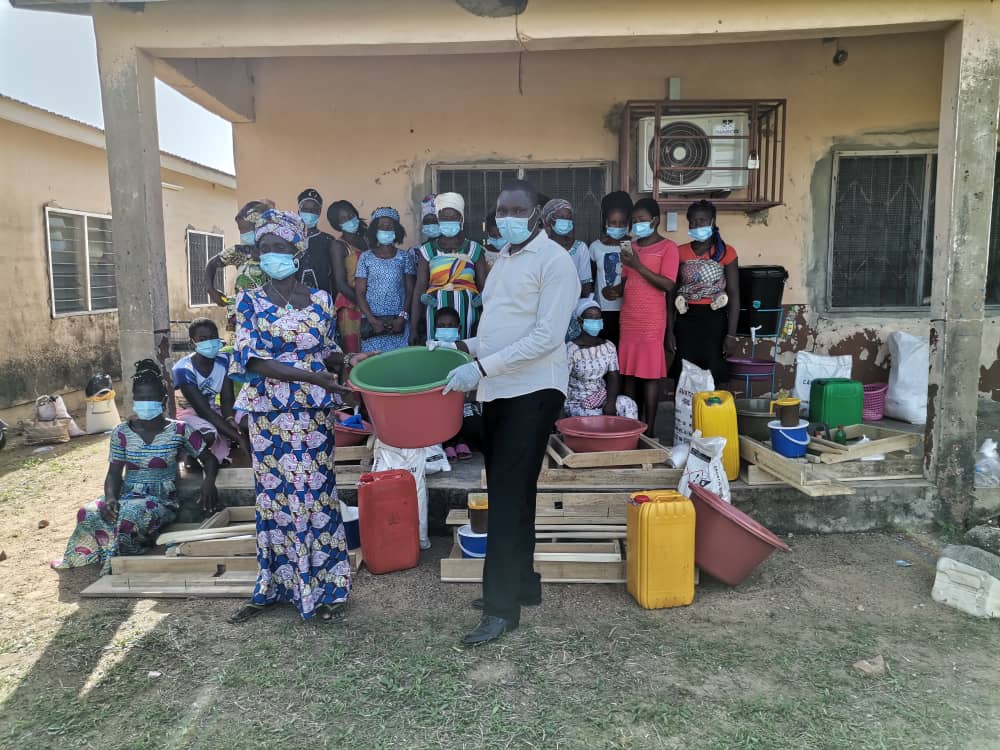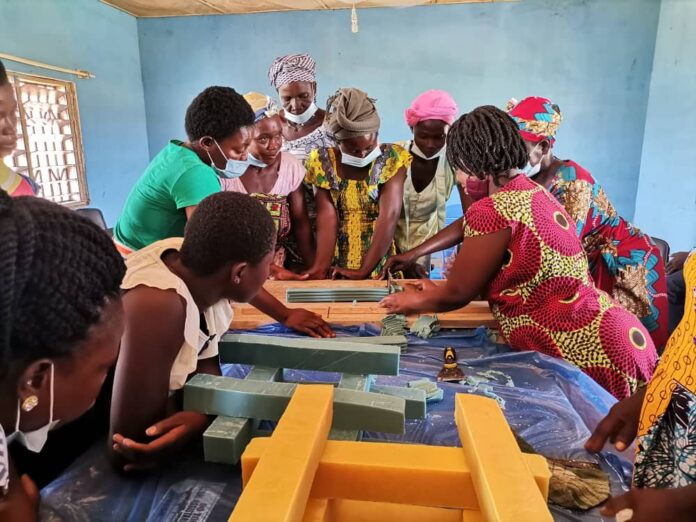The Widows and Orphans Movement (WOM) has underscored the need for workers to go into new ventures in addition to their existing occupation.
The non-state organisation, headquartered in the Upper East Region, made the call at an economic empowerment workshop organised for women in the region.
“You don’t have to rely on one business. You need to diversify your business. You should have another business doing so that if one part is not moving well, another part will move well. Diversification enables you to get income from multiple sources.
“When you depend on one source and something happens, you would be thrown out of business. You shouldn’t relax where you are. As a businessperson or a worker, you have to be thinking of how to diversify by entering into another trade,” urged the WOM’s Finance Officer, Jonathan Adanigna Alataaba, who doubled as a facilitator at the workshop.
Organised by the WOM, the workshop was funded by the WaterAid Ghana under its Water, Sanitation and Hygiene (WASH) for Public Health project. The workshop saw 21 women trained how to produce a variety of soap and taught how to set up their own soap factories. The trainees were taken through some basic investment courses including record keeping, business management skills and marketing mix.
“The kind of record keeping I’m going to take you through today is not the record keeping people go to a university or a polytechnic to learn. It is basically a record you can keep by yourselves. In recording your products, you can decide to use strokes and each stroke would represent one bar of soap that you have produced. So, in that case, if you produce ten bars of soap today, you would mark ten strokes either by chalk or charcoal.
“Now, you have to be mindful of children. Please, don’t mark your strokes where a child would reach and, thinking that his or her mother has got a chalkboard, would also go and mark a stroke in your absence and cause confusion by doing so. So, you mark it where children cannot reach. Also, it must be where water will not reach to wash the strokes away when rain falls. These are the things to consider when you are using the strokes to represent your record keeping. Try to represent your production with objects and if you have a student in your house, call the student to translate the objects into your exercise book and that is how you will determine whether you are making profit or not,” Alataaba told the illiterate participants among the trainees.

Empowered to empower others
The WOM emphasised that the soap market was a “competitive one” and rammed home the need for the trainees to place premium on quality— when they set up their own trade— so their products could thrive and stand the test of time in the industry.
The handlers also advised the trainees to keep harmful raw materials, especially caustic soda, out of the reach of children as they carried out their soap-making businesses.
Sharing their joy with the press, the grateful trainees spoke passionately of their plans to invest in people with the knowledge and skills acquired at the workshop.
“The training enlightened me. It inspired me. I know that through the skills gained I will be able to train others. Currently, COVID-19 is threatening lives everywhere. Soap is one of the agents people need to protect themselves from the disease, especially in rural areas where people cannot afford soap. I intend to supply schools with soap as well when I start my business. Government alone cannot provide soap for the schools in this COVID-19 period,” said a trainee, Matilda Agamu.
Linda Atiah remarked likewise, thankfully saying: “I have been jobless. I get up from sleep and sit down the whole day because I have nothing to do. This training has helped me a lot. I never knew how to make soap until I went through the training. Now, we have been taught how to produce different types of soap and how to brand it ourselves.”
The WOM also presented some tools to each of the trainees to start up their soap businesses. The tools, provided by the WaterAid Ghana, include: mould, cutters, design device, caustic soda, colourants, soda ash as well as a set of bowls, cups and basins among others.
Source: Daily Mail GH||Edward Adeti





